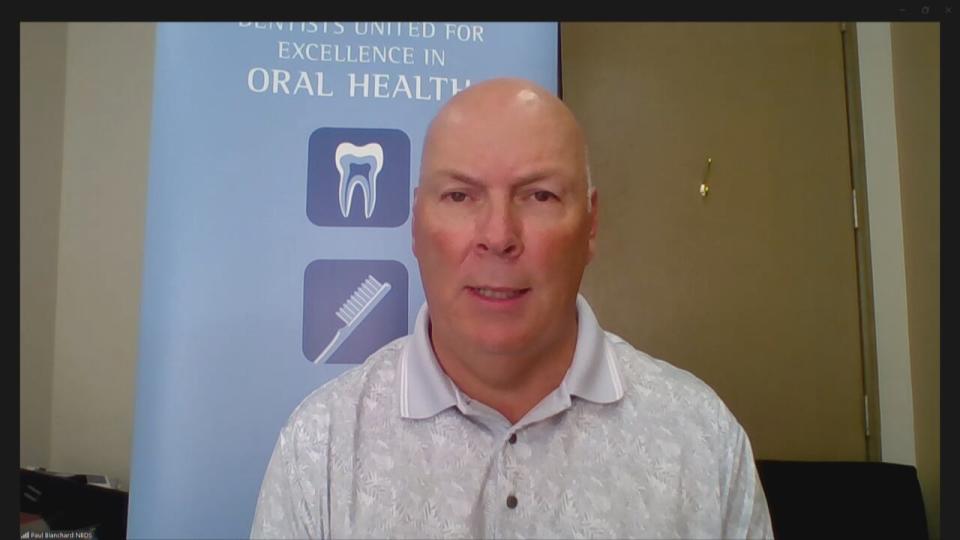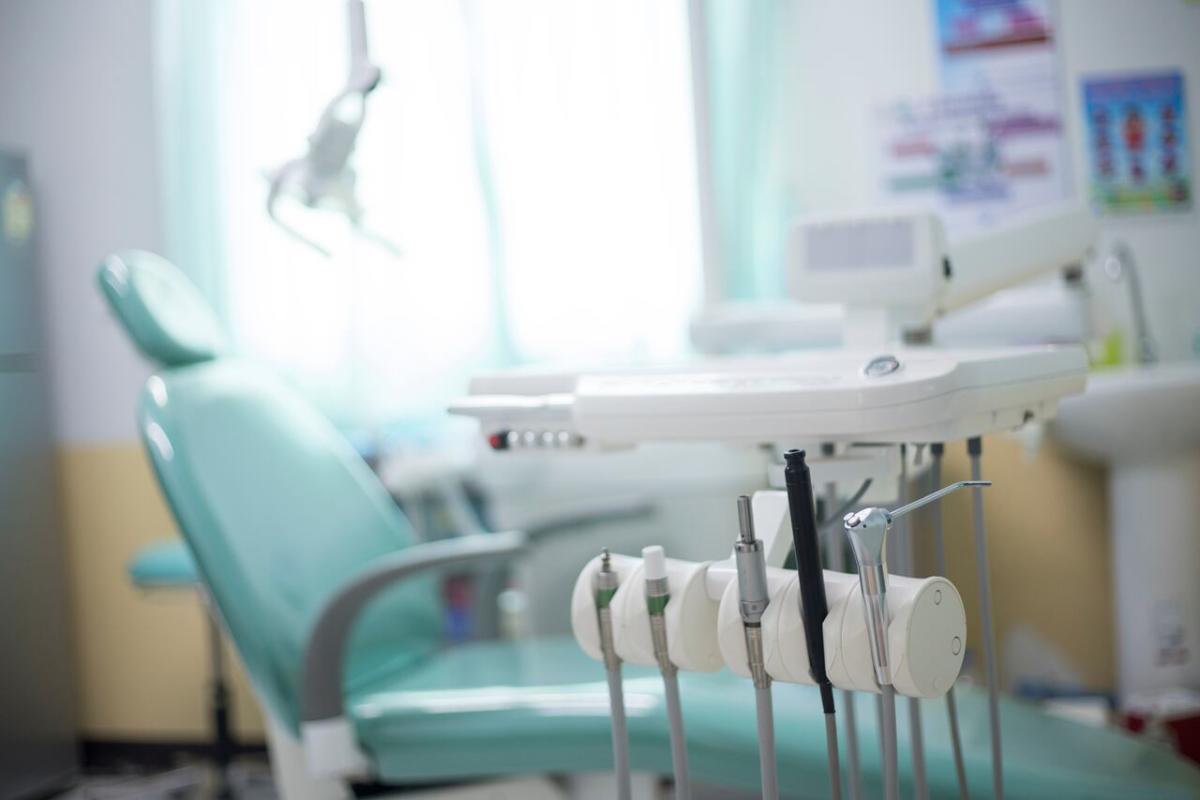Most dentists in New Brunswick have still not started accepting patients through the Canadian Dental Care Plan.
More than 70 per cent of dentists nationally are participating, but numbers provided to CBC News by Health Canada show that number is only around 40 per cent in New Brunswick.
Paul Blanchard, executive director of the New Brunswick Dental Society, said there are many factors that play into why fewer dentists are using the program in this province. But at the forefront is that dentists and dental assistants are already in short supply.
“So we already have a situation here in your budget where we’re at capacity, and then we have a program that comes into play that provides us more volume with more complexity,” Blanchard said.

Paul Blanchard, executive director of the New Brunswick Dental Society, said most dentists in the province are already at capacity and might not have the ability to add new patients. (Clare MacKenzie/Zoom)
“It’s not something that, you know, makes dentists want to participate or be interested in participating. So that’s one of the big challenges.”
The $13-billion plan, which launched for some patients in May, helps cover the cost of dental procedures for low- and middle-income residents who don’t have private insurance plans.
Seniors, children and adults with a disability are currently allowed to apply.
Blanchard said his numbers show that 27 dentists have signed up but about 100 additional dentists have submitted claims to the program, after changes were made to allow dentists to submit claims without officially registering as providers.
The changes permit dentists, denturists and independent hygienists to perform work on patients covered by the plan and to be reimbursed by Ottawa on a case-by-case basis.
Blanchard said 40 per cent of New Brunswick dentists are over the age of 50, and there’s no dental school in the province.
“So the number of dentists is rising a bit, but not as much as it needs to,” he said.
“A significant proportion of dental clinics are not able to accept new patients today.”
Delays of up to nine months are also common right now for people to get an appointment, Blanchard said.
“And so it means that when you finally do get to see the dentist, people have more problems than they would normally have.”
Blanchard said more consultation with dentists about the federal plan would have helped.
“It was a political decision between the NDP and the Liberals, and so it was just presented to us,” Blanchard said.
While about 100 New Brunswick dentists are participating in the ‘alternative pathway’ that allows them to use it without signing up, they don’t have access to the virtual portal or patient records.
“Overall, I think that that those 100 dentists that have submitted claims seem to be happy with the way the system is working,” he said.
“And hopefully they’ll talk to their colleagues and maybe encourage them to participate as well, if only for their existing clients or existing patients, right?”
The plan is also not fully rolled out to all patients, which is another factor in lower uptake, Blanchard said.
“I think we what’s important here is that we need to continue to work with Health Canada to make this program better,” he said, adding that there are ongoing working groups for dentists to find ways to make the plan more appealing.
“And I think dentists in New Brunswick, even though the numbers aren’t great, I think dentists have shown an interest.”

